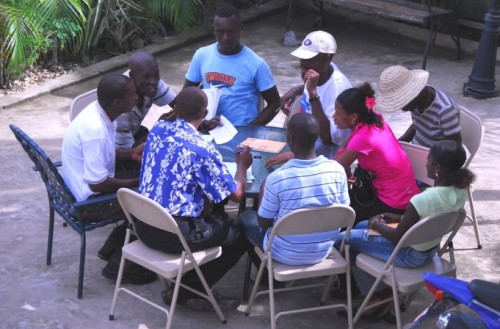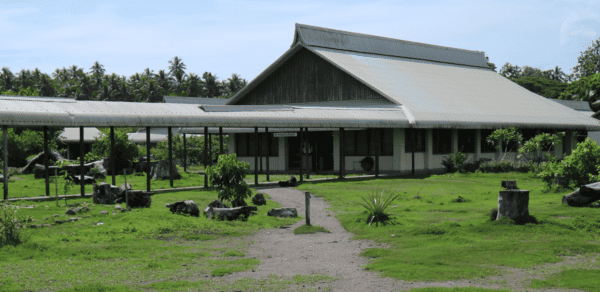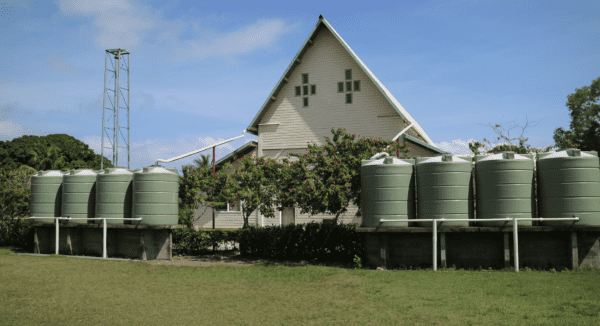When most people hear the term leadership, they think of ‘The Leader’, of the powerful CEO or the strong President (also, most likely, a man). This may be in part because the body of research into leadership is overwhelmingly dominated by the fields of business or organisational psychology. Or because the processes of leadership are often conflated with the actions or vision of a single leader.
This came to the fore in Duncan Green’s interesting commentary on DLP’s inaugural Adrian Leftwich Memorial Conference last month. As Lant Pritchett points out, how change happens is complex. In our everyday lives we constantly strive to understand complexity by creating simple narratives and drawing generalisations from the apparent chaos. Let’s face it, it’s also appealing to think that individuals in positions of formal power have a great deal of control over outcomes within their remit. We’re drawn to the idea of the ‘strong leader’.
But this is an oversimplification. What we’re trying to do at DLP in dissecting the (small-p) political processes of leadership, is in many ways to fight against precisely this appealing notion. We want to understand the conditions that militate against or support developmental change. How do they vary? Are there any common lessons? When we talk about the importance of developmental leadership, we’re not trying to lift ourselves above the messiness of complex systems by implying that every developing country just needs its own Paul Kagame or Lee Kwan Yew. Instead we mean that without the processes of leadership – those necessarily messy processes – developmental change would not happen.
Leadership is difficult to convey in very simple terms but it is about more than just ‘big men’ or ‘big women’, ‘champions of reform’, or ‘picking winners’. DLP’s research sees leadership as a political process, and this has been poorly understood in research. The literature on leadership tends to place too much emphasis on individuals and their qualities, traits, and values, and not enough on leadership as a collective process. This involves leaders’ relations with their followers and vice versa but also, critically, leadership as a (small-p) political process. By (small-p) politics, we mean a process not tied to the formal arenas of (big-P) Politics – the parliaments, senates, congresses, councils, etc. – but the active processes of bargaining, negotiation, influence, the use of power that takes place at all levels and in all spheres of society.
As I’ve pointed out elsewhere, leadership is about the interactions between coalitions, organisations, and elites – those with the power to influence or to make change happen on any level. We’re not just concerned with national political leaders, and in fact some of the most interesting cases of developmental leadership occur at a local or community level. For example, our research into the attitudes to politics and leadership among the poor in southern South America strongly highlights the role of informal or community leadership and politics in effective service delivery. Here the neighbourhood associations, cooperatives, and ad hoc political initiatives that provided school improvement, disaster relief, funding for healthcare and mobilisation for political lobbying are seen as much more legitimate than national or regional politicians or state structures.
Above all, developmental leadership is a process that forges, embeds and legitimates the structures of the state and the rules of the game. It’s informed by and shapes the context around it. For example, the story of the inclusion of Botswana’s traditional leadership system within the modern state clearly highlights the coalition- and consensus-building processes through which leaders, both traditional and modern, worked together to ensure the legitimacy of the newly forged hybrid state. These inclusive, legitimate, hybrid processes were a strong contributing factor in the relative peace and stability of Botswana in comparison to other African states with strong traditional leadership systems, such as Kenya. But these strategies were also largely informed by contextual factors, such as the particular form of the traditional leadership hierarchy (the absence of a strong central monarchy), the common social origins of the new elite, and the sense of threat to Botswana’s independence.
So what does this mean?
Part of the answer is that understanding the context is crucial to understanding the processes that can lead to developmental change. But we can’t fall back on the easy answer that ‘everything’s contingent’ – that you just need to understand the context. Pattern-finding and sense-making are important – not least in our own field where we strive to pull practical and relevant policy messages from complex analysis. So, our approach tries to plough some kind of middle furrow between the attractive narrative and the messy complexity.
What is clear, however, is that leadership, particularly in the context of weak or fragile states, isn’t and can’t be only about individuals or about conventional, rule-bound, structured systems of management or hierarchy. In fragile contexts in particular it is important to understand the formal and informal institutions, the relations of power, the sources of legitimacy, the incentives and the patterns and processes of leadership.
It would be foolish to think that the so-called ‘big men or women’ don’t matter, but in DLP’s research they’re rarely our main focus; in most cases this isn’t where the most interesting stories are, or where (and how) transformative change happens.









